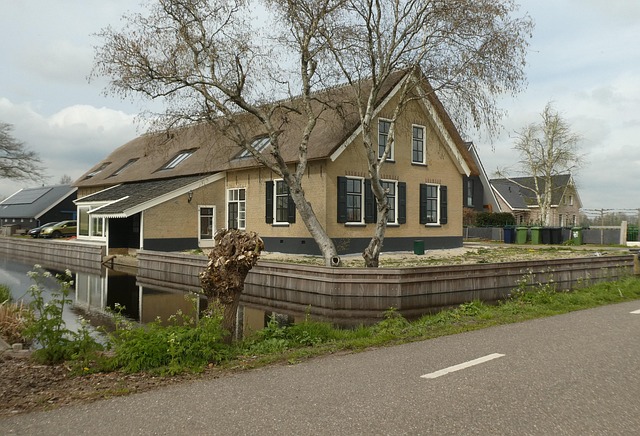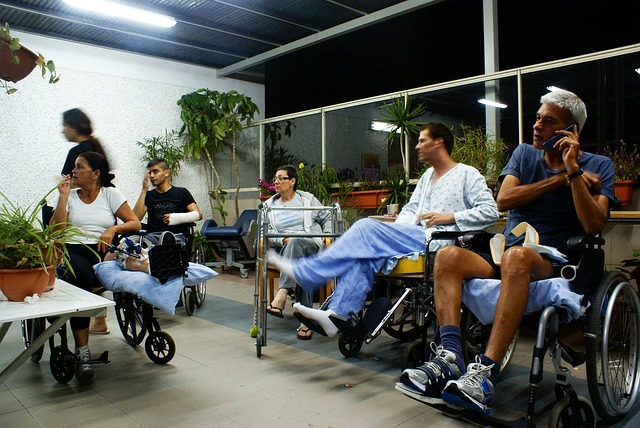Holistic Retreats: Yoga, Meditation, Nutrition Fuel Recovery, Alumni Support
Holistic wellness retreats, focusing on yoga, meditation, and nutrition, offer a powerful path for i…….
Over 15% US adults have used prescription painkillers not prescribed to them.
In the ongoing global effort to combat substance abuse, a powerful tool has emerged from the alumni program model: Alumni Programs for Substance Abuse Recovery. These programs go beyond traditional treatment, offering ongoing support, community, and mentorship to individuals in recovery. This comprehensive article delves into the intricacies of this approach, exploring its definition, impact, and various facets that contribute to its effectiveness. By examining real-world examples and analyzing international trends, we aim to provide valuable insights for stakeholders involved in substance abuse recovery initiatives.
Alumni Programs for Substance Abuse Recovery are structured support systems designed to assist individuals who have completed primary treatment for substance use disorders. These programs focus on fostering long-term sobriety, personal growth, and reintegration into society. The key components typically include:
The concept of alumni programs has its roots in education, where alumni associations have long been fostering connections and support for former students. Similarly, in the context of substance abuse recovery, these programs extend the benefits of community and mentorship beyond initial treatment. The significance lies in several factors:
Alumni Programs for Substance Abuse Recovery have gained global recognition as an innovative approach to addressing substance use disorders. The influence is evident across various regions:
Several trends are shaping the future of this approach:
| Trends | Impact |
|---|---|
| Digital Integration: Utilizing online platforms and mobile apps to connect alumni, share resources, and provide virtual support, making programs more accessible globally. | Increased reach and engagement, especially in regions with limited resources. |
| Personalized Support: Tailoring programs to individual needs, cultural backgrounds, and preferences for enhanced effectiveness. | Improved retention rates and satisfaction among participants. |
| Collaboration with Community Organizations: Partnering with local businesses, faith groups, and community centers to expand opportunities for social engagement and skill development. | Enhanced sense of belonging and improved reintegration into society. |
| Research-Informed Practice: Conducting more studies to evaluate program effectiveness, identify best practices, and inform policy decisions. | Informed decision-making and continuous improvement in program design. |
The economic landscape surrounding Alumni Programs for Substance Abuse Recovery is multifaceted:
Several organizations and investors are recognizing the potential of this sector:
The economic impact of successful alumni programs can be substantial:
Technology plays a pivotal role in modernizing Alumni Programs for Substance Abuse Recovery:
The technological advancements have led to:
The development and success of Alumni Programs for Substance Abuse Recovery are influenced by various policies and regulations:
Different regions have varying approaches:
| Region | Key Policies/Regulations |
|---|---|
| United States | The Substance Use Disorder Prevention and Treatment Act (SUD PTA) provides federal funding and guidelines for treatment, with some states offering specific incentives for alumni programs. |
| European Union | The EU’s Mental Health Strategy includes recommendations for integrated care approaches, encouraging the integration of alumni programs into national healthcare systems. |
| Australia | The National Drug Strategy focuses on harm reduction, with funding allocated to community-based initiatives, including alumni programs. |
| Japan | The Japanese government’s “Health Japan 2030” includes goals for improving mental health services, leaving room for innovative support models like alumni programs. |
Despite their potential, Alumni Programs for Substance Abuse Recovery face several challenges:
Addressing these challenges requires a multi-faceted approach:
The Recovery Network, a non-profit organization in New York City, has pioneered an alumni program that combines peer support with community engagement. Their model includes:
Outcomes: The program has shown a 35% reduction in relapse rates within the first year, with participants reporting improved mental health and social integration.
Alumno, a UK-based organization, focuses on creating supportive communities for individuals in early recovery. Their approach involves:
Impact: Alumno’s program has led to improved employment rates (25% increase within 6 months) and reduced reoffending rates among participants.
Sydney Recovery Circle offers a holistic alumni program integrated into the city’s vibrant community. Key features include:
Results: The program has seen a 40% decrease in emergency room visits among participants within the first 2 years, indicating improved long-term recovery outcomes.
The future of Alumni Programs for Substance Abuse Recovery holds exciting possibilities:
| Trend | Potential Impact |
|---|---|
| AI-Driven Support: Utilizing AI chatbots and virtual assistants for 24/7 peer support and personalized guidance. | Increased accessibility and continuous support, even for individuals with busy schedules. |
| Neurotechnology: Employing brain-computer interface (BCI) technology to enhance meditation and mindfulness practices for improved recovery outcomes. | Potential for enhanced mental health benefits and stress reduction. |
| Genomics and Personalized Medicine: Using genetic testing to tailor treatment plans, including alumni program interventions. | More effective and targeted support based on individual biological profiles. |
To capitalize on these trends and ensure sustainable growth:
Alumni Programs for Substance Abuse Recovery represent a powerful approach to supporting individuals in their long-term recovery journeys. By providing ongoing peer support, community engagement, and skill development, these programs empower those affected by substance use disorders to lead fulfilling lives. The global impact, evidence of success, and potential for growth make this initiative a critical component in the comprehensive management of substance abuse disorders.
As we move forward, continued collaboration between organizations, researchers, policymakers, and communities will be essential to addressing challenges, embracing emerging technologies, and ensuring these programs reach those who need them most. Through dedicated efforts, Alumni Programs can serve as a beacon of hope, enabling lasting change in the global response to substance abuse recovery.
Q: How do alumni programs differ from traditional treatment?
A: While traditional treatment focuses on acute care and detoxification, alumni programs provide ongoing support after primary treatment ends. They offer a broader range of services, including peer mentoring, community engagement, and skill development, to promote long-term recovery.
Q: Can alumni programs accommodate individuals with varying levels of digital literacy?
A: Absolutely. Effective alumni programs recognize the importance of inclusivity and often offer multiple engagement options. This includes in-person meetings, telephone support, and digital platforms with user-friendly interfaces designed to cater to diverse learning styles.
Q: How do I find an alumni program near me?
A: Many organizations have local chapters or partnerships with community centers. You can start by searching online for substance abuse recovery programs in your area or contacting local treatment centers for recommendations. National and international organizations also provide resources for locating alumni programs worldwide.
Q: Are alumni programs covered by insurance?
A: Coverage varies, but many insurance plans recognize the value of alumni programs and may include them as part of their benefits. It’s essential to check with your insurer or the program provider to understand coverage details.
Q: How can I get involved in supporting alumni programs?
A: There are numerous ways to contribute, including volunteering your time, donating funds, or sharing your story to inspire others. Many organizations welcome community partnerships and appreciate support from individuals passionate about recovery and community wellness.

Holistic wellness retreats, focusing on yoga, meditation, and nutrition, offer a powerful path for i…….

Unhealthy boundaries in relationships can exacerbate issues like addiction or trauma, leading to low…….

Mental Health First Aid (MHFA) training empowers individuals in substance abuse recovery to recogniz…….

Healthy relationships coaching is a transformative tool within alumni programs for substance abuse r…….

Trauma-informed care revolutionizes addiction treatment by addressing the link between trauma and su…….

Alumni programs for substance abuse recovery leverage mindfulness meditation as a core tool for emot…….

Alumni programs for substance abuse recovery focus on holistic wellness and boundary-setting through…….

Mental health assessments, integrated with Crisis Intervention Training (CIT), are vital for underst…….

Alumni programs for substance abuse recovery leverage Motivational Interviewing (MI) to empower indi…….

Substance abuse treatment is evolving beyond willpower-focused approaches, addressing complex factor…….